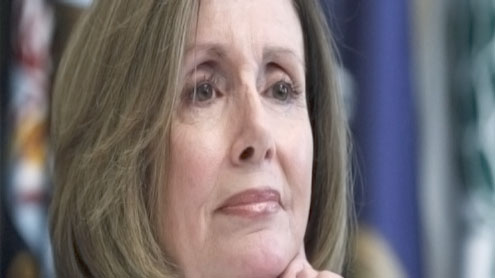 The House Democratic leader has named the final three members to a bipartisan “super-committee” tasked with finding a way out of the US debt crisis.Nancy Pelosi’s picks fill out the 12-member panel, split between Democrats and Republicans.The panel will have until 3 November to recommend a plan to trim $1.5tn (£930bn) from the deficit in 10 years.The joint House-Senate panel was created as part of a deficit reduction and debt limit law enacted last week.
The House Democratic leader has named the final three members to a bipartisan “super-committee” tasked with finding a way out of the US debt crisis.Nancy Pelosi’s picks fill out the 12-member panel, split between Democrats and Republicans.The panel will have until 3 November to recommend a plan to trim $1.5tn (£930bn) from the deficit in 10 years.The joint House-Senate panel was created as part of a deficit reduction and debt limit law enacted last week.
The US owes more than $14tn in debt and runs an annual budget deficit of more than $1.4tn.Ms Pelosi, who was speaker of the House of Representatives until the Republicans won control in the November 2010 elections, chose Representatives James Clyburn of South Carolina; Chris Van Hollen, top Democrat on the Budget Committee; and Xavier Becerra of California.
The three men are known as partisan Democrats, and all have senior roles in the Democratic caucus or on House committees.On Wednesday, House Speaker John Boehner, a Republican, picked Jeb Hensarling of Texas and Dave Camp and Fred Upton, both of Michigan, as his selections to the panel.Also, Republican Senate Minority Leader Mitch McConnell named Jon Kyl of Arizona, Pat Toomey of Pennsylvania and Rob Portman of Ohio as his picks.On Tuesday, Senate Democratic Majority Leader Harry Reid named Senators Patty Murray of Washington, John Kerry of Massachusetts and Max Baucus of Montana to the panel.
Deadlock anticipated
The committee was formed as part of a bipartisan compromise that last week raised the US debt ceiling to allow more borrowing and cut $1tn from the US budget.It is tasked with recommending on a majority vote $1.5tn in deficit reductions over 10 years. Both houses of Congress will then have to hold an up-or-down vote by the end of the year.If the committee fails to issue a recommendation, a series of painful spending cuts will automatically occur, split evenly between defence and domestic programmes dear to Republicans and Democrats, respectively. Those automatic cuts are described as an enforcement mechanism to encourage bipartisan co-operation.
Polling has indicated most Americans see a mix of tax increases on the wealthy accompanied by spending cuts as the best way to trim the US budget deficit.But pessimistic analysts in Washington have predicted the panel will remain deadlocked along party lines, with Republicans refusing measures to raise new tax revenue and Democrats digging in to protect social programmes for the poor and elderly. – BBC












